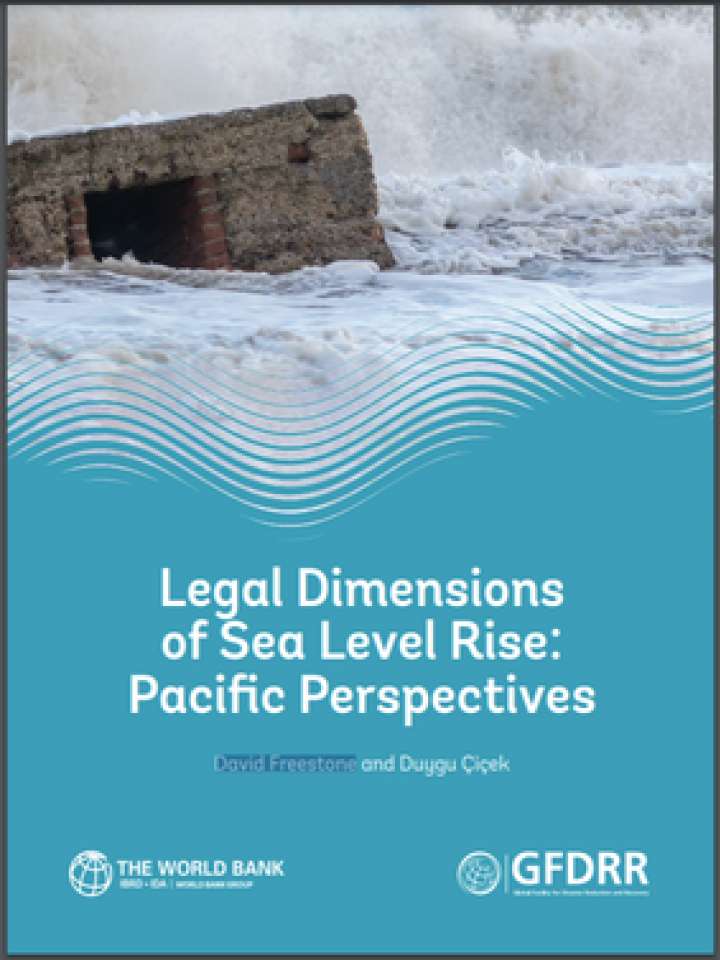Legal dimensions of sea level rise: Pacific perspectives
This legal study has been developed as a part of the World Bank’s work on ‘Building Resilience in Pacific Atoll Island Countries’ which aims to strengthen the capacity of selected Pacific atoll island countries to cope with the long-term adverse impacts of climate change and boost their resilience. The goal of this work is to contribute to the National Adaptation Planning Process currently in progress for the Republic of the Marshall Islands and inform adaptation options for Kiribati and Tuvalu through the Atoll Adaptation Dialogue Mechanism. ‘Building Resilience in Pacific Atoll Island Countries’ stresses that short- to medium-term adaptation options will not suffice in addressing the escalating impacts of sea level rise and climate change.
Consequently, it explores the implications of alternative adaptation options while also considering investment needs and relevant costs associated with these options. It is divided into three parts. Part one looks at the pioneering work of the Intergovernmental Panel on Climate Change (IPCC) and its most recent predictions for sea level rise during the current century and then sets it in the context of other scientific work on threats from sea level rise and warming, in particular the predicted impacts on the fish resources on which the region is so dependent. Part two sets out an overview of relevant legal frameworks, key terminology, and principles based on international law as well as judicial decisions and scholarly work that define the rights, resources, and obligations of SIDS and the Pacific atoll countries. Part three then presents a series of responses to key legal and policy questions faced by these States, in relation to sea level rise.
Explore further
